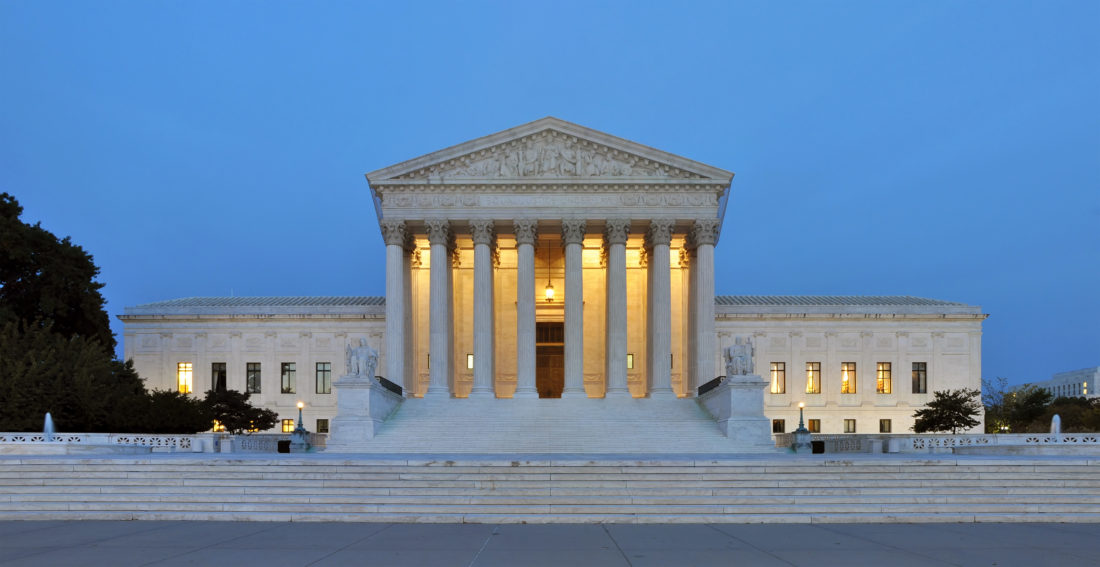With the impacts of climate change becoming more visible and more dire, the movement to hold corporations accountable is growing day by day. As readers know, we have been covering the climate liability lawsuits that have been filed of late and 2018 was a banner year as reported by Climate Liability News.
Several new lawsuits and investigations were announced over the past couple of months. At the center of these pursuits is the fossil fuel industry, which profited handily from the sale of products that cause greenhouse gas pollution, while misleading the public and policy makers about the scientific consensus on climate change, even as their own scientists recognized that same growing consensus.
As these investigations and lawsuits blossom, documents from our Climate Files archive continue to be utilized, exposing the trail of corporate denial illuminated in many recent suits against the fossil fuel industry.
New Lawsuits, Investigations, and Updates
- The Pacific Coast Federation of Fishermen’s Association, November 2018:
- Representing the first climate liability lawsuit brought against fossil fuel companies by another industry, the Pacific Coast Federation of Fishermen’s Association filed a complaint against thirty corporations for damages to their Dungeness crab business, caused by toxic algae blooms which have been linked to warmer water and climate change.
- The complaint cited multiple documents from Climate Files including:
- Shell Internationale Petroleum, Greenhouse Effect Working Group, 1988 Shell Confidential Report “The Greenhouse Effect” (May 30, 1988);
- Royal Dutch/Shell Group, 1998 Shell Internal TINA Group Scenarios 1998-2020 Report, (1998);
- P. Langcake, 1994 Shell Report “The Enhanced Greenhouse Effect – A review of scientific aspects,” (Dec. 1994);
- Joseph M. Carlson, Exxon Memo on “The Greenhouse Effect” (Aug. 3, 1988);
- Exxon Corporation, Global warming: who’s right? (1996);
- Lee R. Raymond, Exxon CEO, Energy – Key to growth and a better environment for Asia-Pacific nations, World Petroleum Congress (Oct. 13, 1997);
- Robert Peterson, A Cleaner Canada in Imperial Oil Review (1998);
- Joe Walker, American Petroleum Institute, Email to Global Climate Science Team, attaching the Draft Global Science Communications Plan (Apr. 3, 1998);
- John Browne, BP CEO Climate Change Speech to Stanford (May 19, 1997).
- EU Parliament investigation, December 2018:
- Sparked by a 2016 petition from Food and Water Watch (FWW), EU Members of Parliament (MEPs) in the environment, public health and food safety committee will hold an investigation into what Exxon Knew about climate change and when. The committee hearing, set for March 21st, is reported to include testimony on misinformation campaigns led by the corporation.
- The FWW petition cites precursors to CIC’s work such as the ExxonSecrets database and an early analysis of key documents posted on Climate Files.
- Massachusetts case update, January 2019:
- In early January, the United States Supreme Court denied ExxonMobil’s most recent attempt to quash Attorney General Maura Healey’s civil investigation into whether the oil giant mislead investors and the public on climate change. Exxon has repeatedly attempted to have the investigation set aside, but without success. Citing documents uncovered by years of reporting (and maintained on Climate Files) the investigation requests further documentation from the company on its knowledge of climate change.
- NYC shareholder case, October 2018:
- Unlike other lawsuits focused on fossil fuel corporations misleading the public about climate change, this complaint alleges that ExxonMobil defrauded shareholders by not disclosing the full extent that climate change may affect its business. Notably, the complaint hones in on Imperial oil, an ExxonMobil subsidiary, and its developments of tar sands, one of the most carbon intensive forms of fossil fuel energy.
- In France, Canada, and Ireland, new lawsuits were filed that are critical of the government’s role in adapting to climate change, rather than tagging corporations’ role in stopping government action. One wonders if governments will enter evidence of corporate pressure in their defense.

